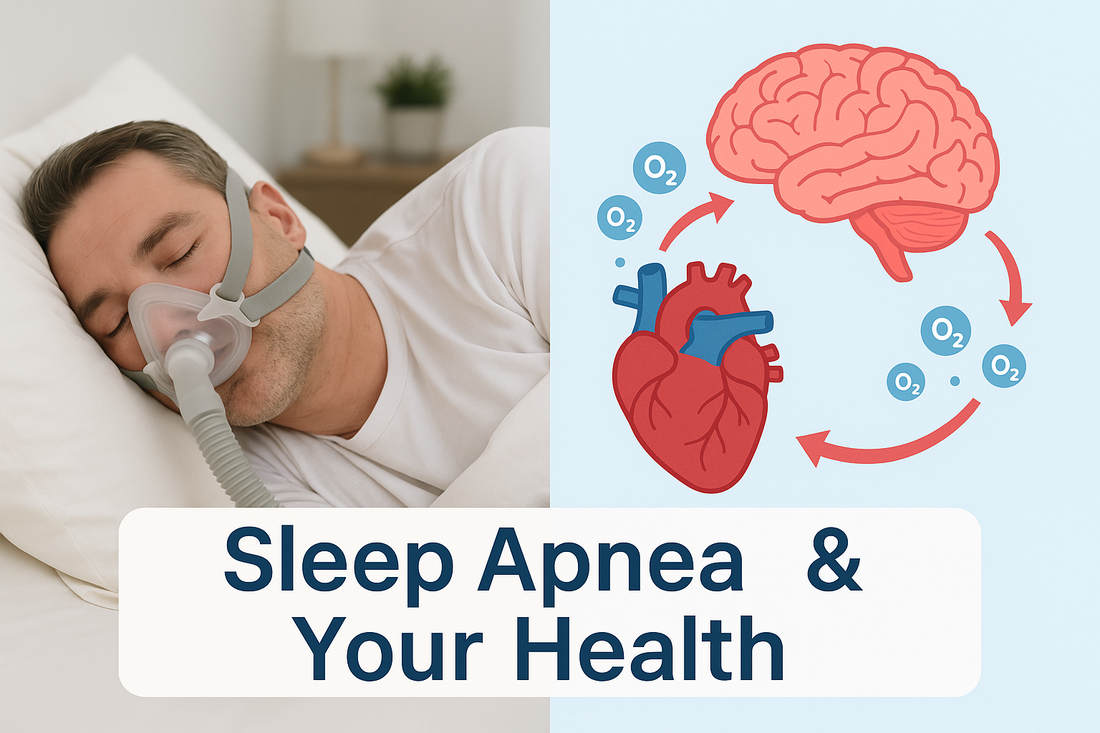
How Untreated Sleep Apnea Affects Your Heart & Brain Health
Share
Sleep is not just about rest—it’s about healing and repairing your body. But if you suffer from sleep apnea, your body never gets the full benefit of quality sleep. Untreated sleep apnea does more than leave you tired; it can have serious consequences on both your heart and brain health.
What is Sleep Apnea?
Sleep apnea is a common sleep disorder where your breathing stops repeatedly during the night. Each pause lowers the oxygen levels in your blood, forcing your body to work harder to keep you alive. These interruptions often go unnoticed, but their effects build up silently over time.
Impact on Heart Health
When oxygen levels drop during sleep apnea episodes, your heart comes under tremendous stress. Over time, this can lead to:
- High Blood Pressure (Hypertension): Low oxygen triggers your body to release stress hormones, which raise blood pressure.
- Heart Attack & Stroke Risk: The constant strain on your heart increases the likelihood of cardiovascular diseases.
- Irregular Heartbeats (Arrhythmias): Oxygen dips can cause abnormal heart rhythms, making your heart work inefficiently.
💡 Studies show that people with untreated sleep apnea are up to three times more likely to suffer heart-related issues.
Impact on Brain Health
Your brain needs oxygen and deep sleep to function properly. Sleep apnea disrupts both, leading to:
- Memory Problems: Poor oxygen supply can damage brain cells responsible for memory.
- Reduced Focus & Concentration: Interrupted sleep makes it harder to stay alert during the day.
- Cognitive Decline: Long-term untreated sleep apnea has been linked to faster cognitive aging and increased risk of dementia.
Warning Signs You Shouldn’t Ignore
- Loud, chronic snoring
- Waking up gasping for air
- Daytime fatigue and headaches
- Difficulty concentrating
If you or a loved one experiences these symptoms, it’s time to take action.
How to Protect Your Heart & Brain
The good news is that sleep apnea is treatable. The most effective solution is CPAP therapy (Continuous Positive Airway Pressure), which keeps your airways open during sleep. With proper treatment, you can:
- Lower blood pressure
- Reduce risk of stroke and heart attack
- Improve memory, focus, and overall brain function
- Wake up feeling refreshed and energetic
Final Thoughts
Untreated sleep apnea is more than just a sleep issue—it’s a serious health risk that can damage your heart and brain over time. Early diagnosis and treatment can protect your long-term health and improve your quality of life.
👉 Take your sleep seriously. A healthier heart and sharper mind start with better sleep.
